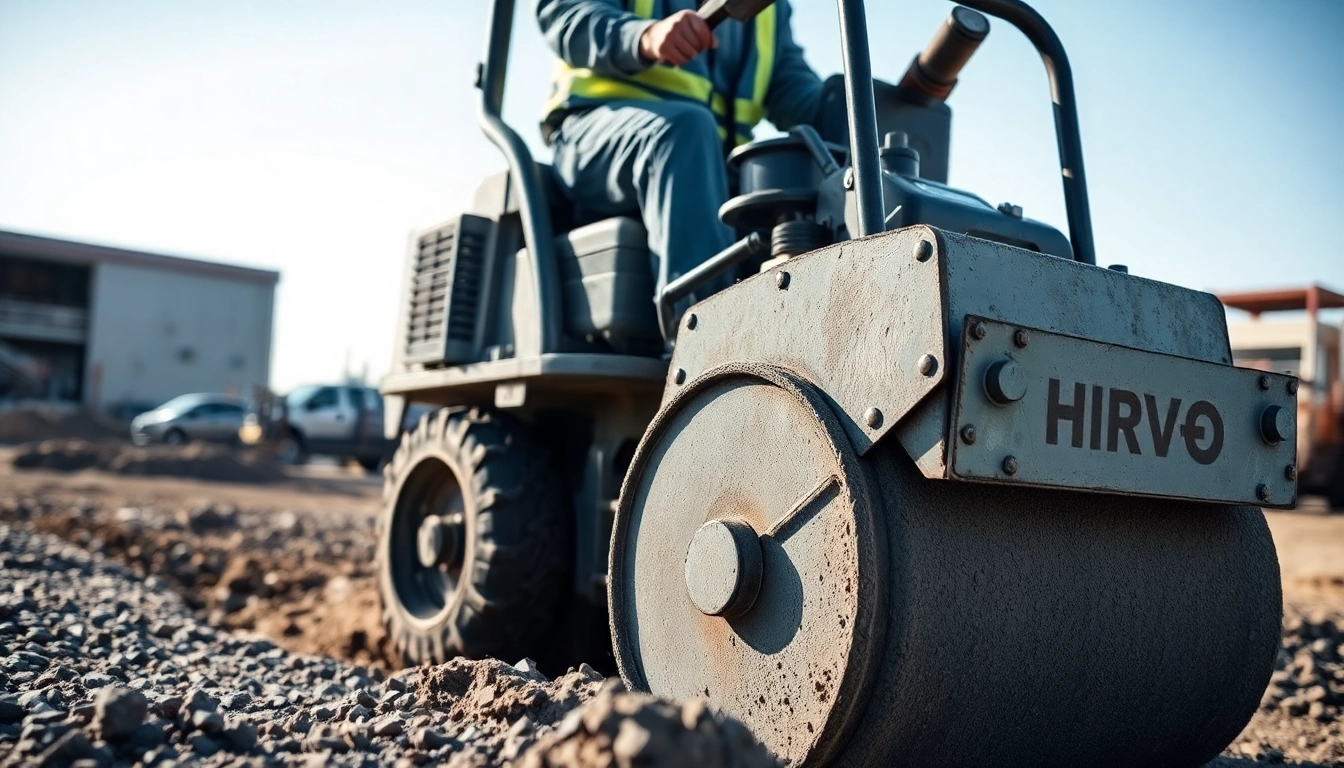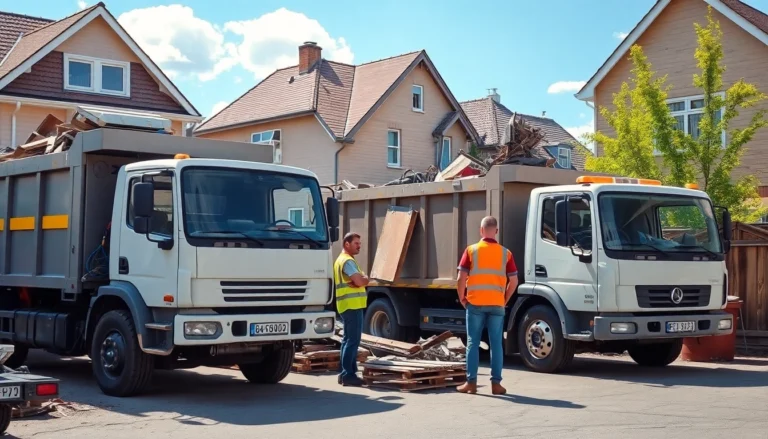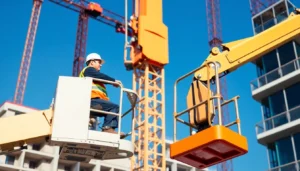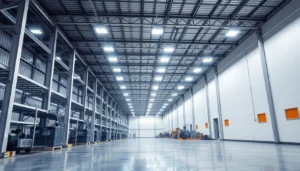Understanding Compactors and Their Role in Construction
In the dynamic world of construction and civil engineering, achieving a stable and durable foundation is paramount. Compactors, also known as vibratory plate compactors or wacker plates, are essential tools used to compress soil, gravel, asphalt, and other materials, ensuring a solid base for various building projects. Whether laying the groundwork for a new driveway, preparing ground for landscaping, or installing pavements, the proper use of compaction equipment significantly enhances structural stability and longevity.
Choosing the right compactor for your project can be challenging without proper knowledge of the different types available, their applications, and how to utilize them effectively. This guide aims to demystify the world of compactors, delve into their specifications, and provide guidance on selecting optimal rental equipment to meet your specific project requirements.
For businesses and DIY enthusiasts exploring options, Compactors rental offers a flexible solution that combines cost efficiency with access to modern, well-maintained equipment. Renters benefit from expert advice, prompt delivery, and the ability to tailor equipment choices to project scope.
Types of Compactors Available for Rent
Understanding the different types of compactors is fundamental to selecting the right equipment. Compactors are broadly classified based on their design, mechanism, and intended use. The main categories include:
- Plate Compactors (Wacker Plates): These are the most common and versatile type, featuring a flat plate that vibrates horizontally to compress material. They are ideal for small to medium-sized areas like patios, pathways, and driveways. Variants include petrol, diesel, and electric-powered models, with sizes ranging from 320mm to 400mm plates.
- Plate Rollers (Compacting Rollers): These are larger, ride-on or walk-behind machines designed for expansive projects like roadworks, filling large trenches, or compacting large surfaces. They use a drum mechanism and can come as single or double drum models, suitable for asphalt and other heavy-duty applications.
- Concrete Vibrators and Tamping Rammers: Specialized compactors focused on concrete work or trench compaction, often used in conjunction with plate compactors for comprehensive groundwork preparation.
Each type caters to specific needs, with rent options available across the UK to ensure project flexibility. For instance, Jewson and Hirebase provide a broad range of compactors suitable for different scales and industries, making rental an accessible and practical choice.
Common Applications of Compactors in Construction
Compactors are indispensable across various construction and landscaping projects. Their applications include:
- Foundation Preparation: Ensuring soil or gravel is compacted to prevent future subsidence, critical for foundations of buildings, patios, and pathways.
- Road Construction: Compacting asphalt and subgrades to achieve smooth, durable road surfaces.
- Paving and Asphalt Work: Achieving even layers of asphalt by suitably compacting the material to improve load resistance and lifespan.
- Landscape and Garden Projects: Compacting soil, sand, or gravel for patios, driveways, and retaining walls, providing stability and preventing shifting over time.
- Trench and Utility Line Backfilling: Compacting backfill material to prevent settling that can damage pipes or cables.
Case studies indicate that using the appropriate compaction equipment enhances structural integrity, reduces maintenance costs, and accelerates project timelines, making them a worthwhile investment—whether renting for a small DIY project or a large-scale commercial venture.
Key Features to Look For in a Rental Compactor
Not all compactors are created equal. When renting equipment, consider the following key features to ensure optimal performance and safety:
- Vibration Amplitude and Frequency: These determine how forcefully the compactor presses down, affecting the quality of compaction. Higher amplitude and frequency are suited for dense, tough soil or asphalt.
- Engine Power and Fuel Type: Petrol, diesel, or electric options provide different advantages in terms of runtime, noise levels, and emissions. Diesel models often offer greater power for heavy-duty tasks, while electric ones are quieter and cleaner for smaller projects.
- Plate Size and Weight: Larger and heavier plates deliver more force, suitable for large or hard surfaces, while smaller plates are better for precision tasks.
- Ease of Transportation and Maneuverability: Lightweight models with convenient handles ease transport and operation, especially in tight spaces.
- Durability and Maintenance: High-quality, robust build quality minimizes downtime. Look for brands with readily available spare parts and service support.
- Compatibility with Attachments and Accessories: Some rentals offer options like tamping rammers or vibratory plates with adjustable settings to tailor to specific substrates.
Investing in equipment with these features ensures efficient, safe, and effective project execution, reducing rework and delays.
How to Choose the Right Compactor Rental for Your Needs
Assessing Project Size and Scope
The first step in selecting a compactor is to evaluate the scale of your project. Small-scale DIY jobs like laying a patio or garden pathway typically require a compact plate compactor with a 320mm-400mm plate. Larger projects, such as roadworks or large landscaping jobs, may necessitate robust vibratory rollers or larger plates.
For instance, if you’re preparing a small backyard patio, a lightweight petrol-powered plate compactor will suffice. Conversely, for extensive asphalt paving, a ride-on roller multiplies efficiency.
Matching Equipment Specifications with Job Requirements
Once you’ve assessed project size, match the equipment’s technical specs with your needs. Consider the substrate’s hardness, thickness, and the desired level of compaction. For dense, hard surfaces like asphalt, choose a vibratory roller or heavy-duty plate compactor with higher amplitude.
Factors Influencing Rental Cost and Availability
Rental price depends on equipment type, duration, and rental provider. Typically, small plate compactors cost between £30-£70 per day, while larger rollers or specialized equipment may range from £100-£200 daily. Booking in advance, choosing local rental outlets, and opting for longer-term rentals often offers cost savings. Availability can vary based on demand, so early booking is recommended, especially during peak construction seasons.
It’s also worth considering the inclusion of delivery and pickup services, which many suppliers offer, saving time and effort on logistics.
Benefits of Renting Compactors Over Buying
Cost-Effectiveness and Flexibility
One of the main advantages of rental over purchase lies in financial savings. Acquiring a high-quality compactor involves substantial initial investment, often exceeding thousands of pounds. Rentals allow access to top-tier equipment without the burden of ownership, maintenance, storage, and depreciation costs. Additionally, rental offers flexibility—choosing different models tailored to each project’s needs ensures optimal results without unnecessary expense.
Access to Modern, Well-Maintained Equipment
Rental companies prioritize regular maintenance and equipment updates, providing clients with reliable and up-to-date machines. This reduces downtime caused by mechanical failures and ensures compliance with safety standards. For example, speedily renting a latest-model plate compactor from providers like Sunbelt Rentals guarantees efficient performance and energy savings.
Expert Support and Delivery Services
Many rental providers offer guidance on selecting the appropriate machinery, operational training, and prompt delivery and pickup, significantly simplifying project logistics. Expert support minimizes misuse and maximizes compaction results, ensuring your project stays on schedule and within budget.
Best Practices for Using and Maintaining Rental Compactors
Proper Operation Techniques for Optimal Results
Effective use begins with understanding the machine’s operation manual. Ensure the machine is on level ground, start with a thorough inspection, and adjust settings suitable for your substrate. Use overlapping passes, and avoid excessive operation in one spot to prevent uneven compaction. Maintain consistent movement and avoid abrupt maneuvering to prolong equipment lifespan.
Safety Guidelines and Training Tips
Prioritize safety by wearing appropriate PPE—ear protection, gloves, safety boots, and eye protection. Keep a safe distance during operation to avoid injuries from flying debris or machine vibration. Operators should be trained adequately, especially for heavier equipment, to prevent accidents and ensure efficient use.
Routine Maintenance and Inspection Before Use
Before each use, inspect the equipment for loose parts, oil leaks, and electrical or mechanical issues. Clean the machine after use, check fuel levels, and ensure all safety features are functional. Regular maintenance extends the lifespan of the equipment and guarantees consistent performance day after day.
Where to Find Reliable Compactors Rental Services in the UK
Top Rental Providers and Their Offerings
The UK boasts numerous reputable rental companies, including Jewson, Brandon Hire, Hirebase, Speedy Hire, and Sunbelt Rentals. These providers offer a wide selection of compaction equipment, from small plate compactors to large rollers, catering to both trade professionals and DIY enthusiasts. Their extensive inventories, along with delivery and support services, make them go-to sources for reliable machinery.
How to Book a Compactor Rental Easily
Booking is straightforward through online platforms or direct contact. Many rental companies feature user-friendly websites that allow you to specify equipment type, rental duration, and delivery details. Comparing prices and reading customer reviews helps in making informed choices. Early reservations, especially during busy seasons, ensure equipment availability when needed most.
Customer Reviews and Success Stories
Feedback from satisfied clients highlights the efficiency and reliability of rental services. For example, a recent case study involved a landscaping company in London who successfully rented a series of vibratory plate compactors, completing a city park project ahead of schedule and under budget. These success stories serve as testament to the value of renting high-quality equipment and partnering with professional providers.



















